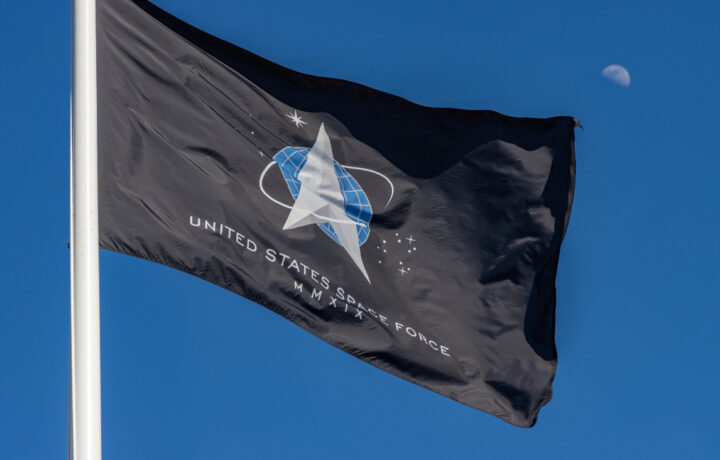The U.S. Space Force awards contracts to three private sector firms under the Pentagon’s National Security Space Launch Phase 3 Lane 1 procurement program. The companies include Jeff Bezos’ Blue Origin, Elon Musk’s SpaceX, and the joint Boeing-Lockheed Martin United Launch Alliance (ULA). The value of the initial program was reported to be $5.6 billion.
While the U.S. Department of Defense (DoD) didn’t specify which of the respective companies’ rockets were selected, it was noted that seven companies had bid for entry into the program. The three companies will now be able to bid for the NSSL, with the first mission to space currently scheduled to occur by December.
Expanding the Launch Providers
Two of the three firms – SpaceX and ULA – have already been the DoD’s primary rocket launch providers under a predecessor program, dubbed Phase 2. That program provided ULA a 60% share of all Pentagon missions through 2027, while SpaceX handled the rest.
According to reports, Blue Origin was added to the NSSL effort as the U.S. Space Force is adopting its new strategy for space launches as part of the Phase 3. This will include two lanes in which the companies can compete for launch contracts, with the recent contracts focused on Lane 1.
Lane 1 is for commercial-focused missions, and could allow new providers to enter the market – and that includes Blue Origin. Lane 2 would be for experienced firms whose rockets can meet the security and performance requirements set forth by the DoD.
“Today marks the beginning of this innovative, dual-lane approach to launch service acquisition, whereby Lane 1 serves our commercial-like missions that can accept more risk and Lane 2 provides our traditional, full mission assurance for the most stressing heavy-lift launches of our most risk-averse missions,” Frank Calvelli, assistant secretary of the Air Force for Space Acquisition and Integration, said in a statement.
The Lane 1 launches are on track to begin in the first quarter of fiscal year 2025 (FY25), with at least 30 missions expected to be completed.
Next Steps for Three Contractors
The three companies will next provide the Space Force with an assessment of how they each will approach the mission requirements. Blue Origin – which had bid for the Phase 2 contract but failed to qualify – was awarded $5 million for an initial capabilities assessment for its New Glenn launch vehicle (LV), while SpaceX and ULA each received $1.5 million for their Falcon series and Vulcan LVs respectively.
While three companies are now in the Lane 1 competitions, Space Systems Command (SSC) expects that the program could be further expanded as more companies develop rockets qualify. According to C4ISRNET, Firefly Aerospace, Rocket Lab, and Relativity Space are each currently developing launch vehicles with Lane 1 in mind.
“As we anticipated, the pool of awardees is small this year because many companies are still maturing their launch capabilities,” Brig. Gen. Kirstin Panzenhagen, Space Systems Command’s program executive officer said in a statement. “Our strategy accounted for this by allowing on-ramp opportunities every year, and we expect increasing competition and diversity as new providers and systems complete development.”
Second Lane Selections Coming Soon
Space Systems Command (SSC) will award the Lane 2 contracts by the fall of this year. It will also feature a 60/40 share ratio to split between the selected providers with about 42 missions to take place between FY 2025 and FY 2029. A third launch provider could also begin to compete for launches beginning in FY 2026 and would receive around 7 launches.
Lane 2 will require higher performance, SSC-certified space vehicles launching payloads to more stressing orbits. As a result, proven launch providers SpaceX and ULA will likely have an advantage, at least initially, for the Lane 2 contract competitions.




